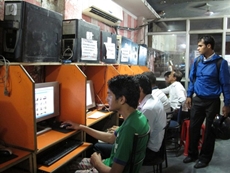World Bank cautions against restricting net access
15 Jan 2016
The World Bank has said net neutrality should ensure the greatest possible internet access to users and not undermine their fundamental rights and freedoms, and voiced concern over moves by companies globally, including Facebook in India, to provide people free internet with restricted access.
 "Care should be taken to ensure that users have the greatest possible access to internet-based content, applications and services of their choice," said the World Bank in a report.
"Care should be taken to ensure that users have the greatest possible access to internet-based content, applications and services of their choice," said the World Bank in a report.
"Traffic management measures, while legitimate, should not reduce the enjoyment of fundamental rights and freedoms, particularly freedom of expression," the report said.
The bank in its voluminous 350-page report 'World Development Report 2016: Digital Dividends' said the balance here should be carefully calibrated so that network operators continue to have incentives to build out and continuously improve networks and network capacity.
The international financial institution in its report refers to the debate in many developing countries like India and offers made by companies like Facebook.
"The recent trend to develop services in which some basic content can be accessed free of data charges (such as Facebook's Free Basics or Internet.org) while the other content is subject to data charges, would appear to be the antithesis of net neutrality and a distortion of markets," it said.
"Nevertheless, some defend the practice as a means of extending internet use in low-income countries. In India, following protests, some participating organisations withdrew support to Airtel Zero and Internet.org, as the regulator indicated that these platforms do not provide equal treatment to all online services," the report said.
An open and free internet is a key contributing factor to innovation in the digital economy, making it critical to protect this openness, it added.
"This report is saying that what we want to do is to make the internet accessible, affordable, open and safe. So anything which is contributing to this trend is a good thing," said Deepak Mishra, who authored the report with Uwe Deichmann.



















